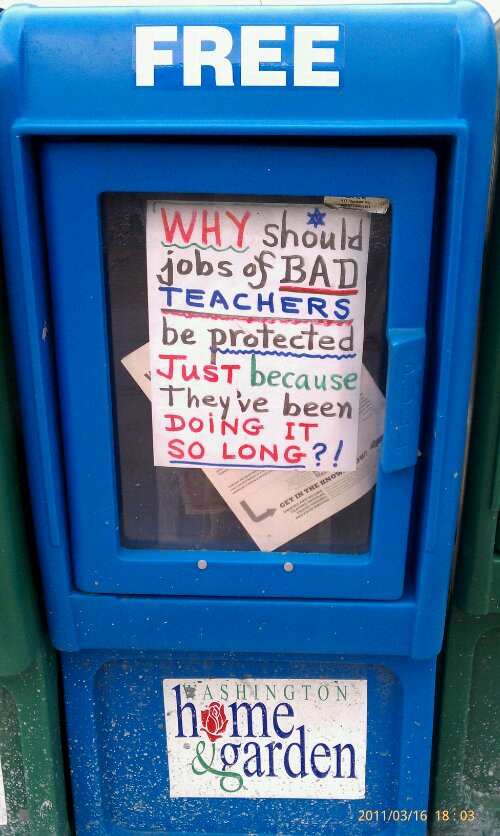Good morning, DCentric readers! Enjoy some tasty links before you mentally check out on a Friday.
Remembering Taylor’s D.C. Contributions: More than just money, past and present Whitman-Walker Clinic employees laud Elizabeth Taylor’s HIV/AIDS advocacy Former clinic worker David Chalfant: ”It created a sea change in the way people in Washington, across the country and around the world looked at HIV and AIDS…For her to step out and do that very famous commercial where she holds up a condom and says, ‘This is the one way we know to help prevent the spread of HIV and AIDS — before our sitting president [Reagan] even said the words ‘HIV’ and ‘AIDS’ in public was quite a statement.” (Metro Weekly )
Juan Williams: Making It Too Simple? “To say, as Williams does, that one gets “nervous” around young black men or Muslims is really not to say anything at all. We don’t interact with categories but with people, in specific places and contexts…The real question we should ask ourselves is not whether what he says is true — or rational — but how can we transcend such simple truths in order to better navigate more complicated realities? That’s the conversation we should be having but are not.” (The Root)
Next meal elusive for hundreds of thousands of needy in D.C. area 16.6 percent of Americans do not know where their next meal will come from or when it will be. Compare that to these local numbers: “Nationally, the study showed that 16.6 percent of Americans experienced “food insecurity” — the feeling of not knowing where one’s next meal is coming from — during 2009…Regionally, the percentage was lower overall — about 10 percent — except in the District, where 15.8 percent — or 93,000 residents — experienced food insecurity. Affluent Fairfax and Montgomery counties each had about 70,000 residents experiencing hunger at a rate of 7 to 8 percent.” (The Washington Post)
Student Who Shared Cocaine with Classmates Back Home Child was released to his parents on Tuesday, but is still not in school. Thomson is a “nicer” school than many of us probably realize: “Thomson Elementary School in northwest Washington, D.C. is known for being the first school in the District to offer Chinese as a second language, and for being the closest elementary school to the White House. Now the school is making national headlines for a student bringing something other than lunch and books to school – cocaine.” (afro.com)






